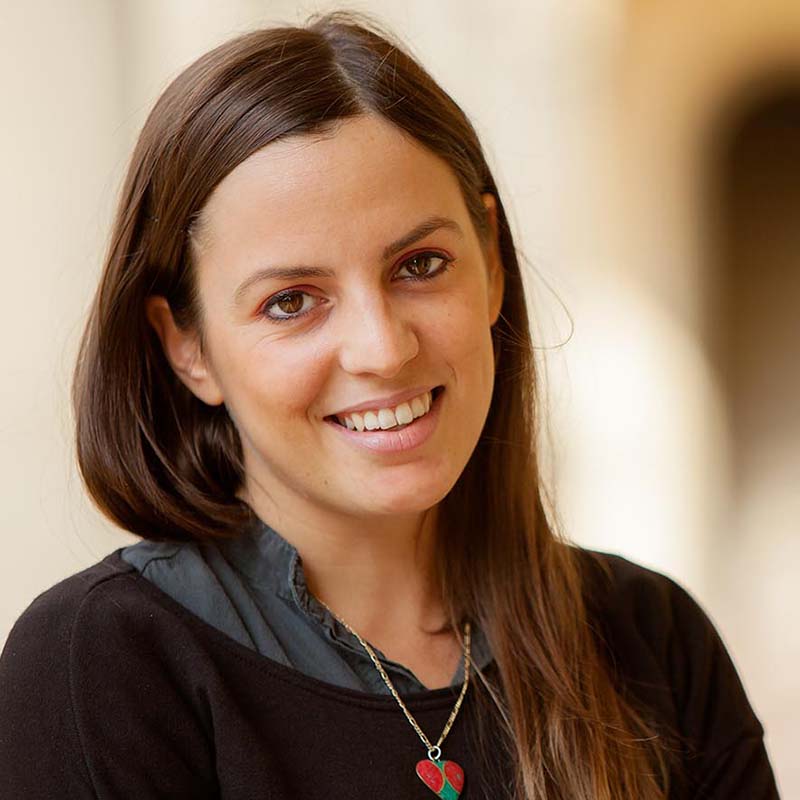Research for policy impact: stories from our visitors
This is the third installment of the Topic of the Month: Research for policy impact
The FSR is a community of scholars who believe that publishing academic articles is important but not enough.
What ultimately motivates our team is to make timely contributions to policy and regulatory processes, and that’s why our doors are always open to new researchers who can challenge our research work and inspire us with new ways of thinking. By engaging with them and thanks to their expertise, we ensure that we are working on relevant issues and that we are constantly broadening our research (in terms of topics, methods and scopes).
In this installment of the Topic of the Month, we interview some of the visitors who have joined us in the last academic year, or who will be joining us soon. And, who knows, maybe the next one will be you!
Ben Hobbs, John Hopkins
Benjamin F. Hobbs is the Theodore M. and Kay W. Schad Professor of Environmental Management. Hobbs was the founding director of the former Johns Hopkins’ Environment, Energy, Sustainability and Health Institute, and holds a joint appointment in the Department of Applied Mathematics and Statistics. A member of the Johns Hopkins faculty since 1995, he is co-director of the USEPA Yale-JHU Solutions for Energy, Air, Climate, and Health (SEARCH) Center, an interdisciplinary team that studies how power generation trends, climate change, and public policy interact to affect air quality.
Hi Ben, what brought you to the Florence School of Regulation and what are the outcomes of your visit?
Well, the first reason was that I had many research visits in Northern Europe and both my wife and I wanted to try the sunny South side (especially in winter!). I have known Jean-Michel Glachant (former FSR Director) and Leonardo Meeus (current Director) since the early days of the FSR and I was sure to find a stimulating environment, with an interesting combination of qualitative and quantitative analysis.
When I go somewhere, I like to establish relationships with younger students and allow them to explain their work to a senior person who may help them make connections, and give advice. Sometimes that results in collaborations and coauthoring, like my (soon to be published) work with Marzia Sesini.
Other experiences I benefitted from are a fascinating Climate Conference organised by Simone Borghesi, and the Loyola Autumn Research School training.
As a leading academic in your field, what were your impressions of the FSR’s research environment, and how do you see opportunities for us to grow and enhance our impact?
Since its start in the little monk cells in San Domenico di Fiesole, where they were stealing apples from the monks’ trees (Jean-Michel admitted he did it occasionally), the FSR has been influencing policy makers and regulators.
In the US, regulators are having a hard time keeping young staff, as they see more opportunities and remuneration elsewhere. And I think the problem is that we have neglected the training of young regulators.
On the other hand, if your work is interesting, intellectually challenging and embedded in a network of the leading thinkers and professionals in the field, you’ll find it more rewarding to stay – this is where an institution like the FSR has played a key role in Europe, helping to raise the profile and standing of regulators and making their role ever more meaningful, stimulating and connected.
Where I see opportunities for the school to grow and increase its impact is in encouraging and supporting the young researchers (especially the introverted ones) to travel more and present their work, helping them to identify opportunities for knowledge sharing and exposure. In this way, the institution can also build its reputation and explore new collaborations.
Marie Dejonghe, Ghent University
Marie Dejonghe is a PhD researcher at Ghent University at the Ghent Institute for International and European Studies. Her research covers the energy security implications of hydrogen imports into Europe and is part of the ETF funded project BE-HyFE.
Hi Marie, could you tell us about your background and what motivated you to spend a month at the FSR?
Hi, I’m a PhD researcher at Ghent University, at the Ghent Institute for International and European Studies. My doctoral dissertation focuses on the geopolitics of hydrogen. The main reason I chose to spend a month at FSR was to benefit from its expertise in my area of research. FSR offers a wealth of knowledge on climate and energy, drawing from diverse fields such as engineering, economics, law, and social sciences. This multidisciplinary approach is incredibly valuable when studying energy-related issues. Additionally, FSR’s strong focus on policy-oriented research complements the more academic approach I’m used to at my home institution, making it an enriching experience.
What were your main activities here, and how would you describe the relations you developed with the FSR research team?
During my time at FSR, I had the chance to present some of the ongoing work from my research, and have insightful discussions with researchers from various fields. These conversations really enriched my work. I also had the opportunity to participate in one of FSR’s annual courses on Clean Molecules, gaining first-hand experience in the training programs they offer. The international environment at FSR, combined with the open and welcoming atmosphere, made it easy to connect with researchers and learn more about their work. And before I forget, the beautiful campus and the delicious Italian coffee certainly made it easy to feel at home at FSR as well.
Nicolas Hatem, Paris School of Economics
Nicolas Hatem is a PhD candidate at the Paris School of Economics and Engie R&D.
Hi Nicolas, could you tell us more about your current research and why the FSR was a place worth to visit?
My research focuses on climate change mitigation policies, with an emphasis on the development of low-carbon energy supply. I use empirical evidence to make recommendations for improving the effectiveness and design of such public policies. I immediately liked the FSR for its very applied approach to the most recent and pressing energy policy debates at EU level. Joining the FSR has been very valuable in keeping up to date with the latest EU regulations and learning new practices on how to conduct a robust empirical analysis to best inform decision makers.
Daniel Kirschen, University of Washington
Daniel Kirschen is the Donald W. and Ruth Mary Close Professor of Electrical and Computer Engineering at the University of Washington. His research focuses on the integration of renewable energy sources in the grid, power system economics and power system resilience. Prior to joining the University of Washington, he taught for 16 years at The University of Manchester (UK). Before becoming an academic, he worked for Control Data and Siemens on the development of application software for utility control centers. He holds a PhD from the University of Wisconsin-Madison and an Electro-Mechanical Engineering degree from the Free University of Brussels (Belgium). He is the author of three books and over 200 scientific papers. He is a Fellow of the IEEE and of the Chinese Society for Electrical Engineering. In 2024, he was elected to the Washington State Academy of Sciences.
When I am at my home institution, the University of Washington, I work mostly with electrical engineers and our research is very much influenced by the North American context. At FSR, I look forward to productive conversation with economists and others who can help me understand the European perspective on the economics of power systems with a very large penetration of renewable energy generation. I believe that these interactions will help me write a book that truly reflects the fundamental issues.
Our visitors in 2023-24
| Clemens | Stiewe | Hertie School (Germany) |
| Shilpa | Bindu | Comillas (Spain) |
| Anne | Gerstenberg | University of Hamburg – CLICCS (Germany) |
| Nicolas | Hatem | Paris School of Economics (France) |
| Eva | Ruffing | University of Osnabrueck (Germany) |
| Antoine | Goutland | RTE and MINES des Paris (France) |
| Kerri | Johannes | Iowa Environmental Council (US) |
| Marie | Dejonghe | Ghent University (Belgium) |
| Daniel | Kirschen | University of Washington (US) |
| Madeleine | McPherson | University of Victoria (Canada) |
| Lisa | Frollichi | Università di Urbino (Italy) |
| Saber | Talari | University of Cologne (Germany) |
| Simon | Vanhove | University of Ghent (Belgium) |
| Theodoros | Iliopolous | Hasselt University (Belgium) |
| Eirik Finserås | Finserås | University of Bergen (Norway) |
| Lissy | Langer | Copenhagen Business School (Denmark) |
| Jens | Weibezahn | Copenhagen Business School (Denmark) |






